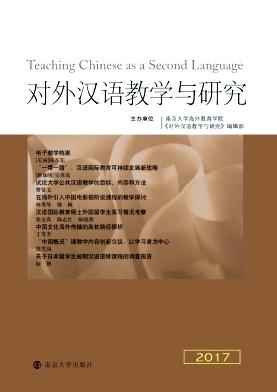Creating a translanguaging space through Languaging: Reflections on design as English Language Specialist in Vietnam
引用次数: 0
Abstract
I am thankful for this invitation to say a few things about translanguaging. Since I just returned from Vietnam as an English Language Specialist for a translanguaging project, I thought it would be refreshing to situate my short note around the activities I created for translanguaging workshops in Vietnam. The translanguaging project encompassed three phases. Phase I and Phase II were conducted online and the tangible product is our translanguaging pedagogy booklets for K-12 English language teachers in Vietnam. The translanguaging project is large in scale, but I will only mention names with whom I collaborated with directly. This serves as my first step to contextualize my stance on translanguaging. The inner circle of the team were Specialists Mary Shepard Wong and myself, plus our Vietnamese counterparts, Dr. Vũ Thị Thanh Nhã, Ms. Trần Kiều Hạnh VNU, and Dr. Le Van Canh. In light of the social phenomenological nature of translanguaging, I see the project as a distributed cognitive system (Hutchins, 1995), which also included but was not limited to the workshop participants, RELOs, Zoom-mediated collaborative activities, my first-person perspective on translanguaging, and my observer’s experiences in Vietnam. It is the interactivity of all these microsystems that contextualize my stance and design. However, the theoretical positioning and activity design are of my own, so is my gratitude for the opportunity to work on this pioneering project.通过语言创造一个跨语言空间:作为越南英语语言专家的设计思考
我很感谢这次邀请,来谈谈关于翻译的一些事情。因为我刚刚从越南回来,作为一个翻译项目的英语语言专家,我想把我在越南为翻译研讨会创建的活动放在我的简短笔记上,会让人耳目一新。翻译项目包括三个阶段。第一阶段和第二阶段是在线进行的,有形产品是我们为越南K-12英语教师提供的翻译教学法小册子。这个翻译项目规模很大,但我只会提到与我直接合作过的人。这是我将我对翻译的立场语境化的第一步。小组的核心成员是专家玛丽·谢泼德·黄和我本人,以及我们的越南同行vvthong Thanh博士Nhã、Trần Kiều Hạnh VNU女士和Le Van Canh博士。鉴于译语的社会现象学性质,我将该项目视为一个分布式认知系统(Hutchins, 1995),其中还包括但不限于研讨会参与者、RELOs、缩放介导的协作活动、我对译语的第一人称视角,以及我在越南的观察者经历。正是所有这些微系统的交互作用使我的立场和设计成为背景。但是,理论定位和活动设计是我自己的,所以我很感激有机会参与这个开创性的项目。
本文章由计算机程序翻译,如有差异,请以英文原文为准。
求助全文
约1分钟内获得全文
求助全文

 求助内容:
求助内容: 应助结果提醒方式:
应助结果提醒方式:


